by Melissa Hohl, Colorado Review Editorial Assistant
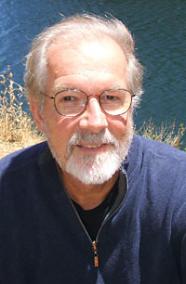 What better way to celebrate National Poetry Month than to interview a dynamic poet? As Paul Hoover’s former student, I was excited to catch up with him and talk about everything from Tristan Tzara to Barry Wade of W.W. Norton & Company. Hoover’s poems, intelligence, and sense of humor are true forces of nature.
What better way to celebrate National Poetry Month than to interview a dynamic poet? As Paul Hoover’s former student, I was excited to catch up with him and talk about everything from Tristan Tzara to Barry Wade of W.W. Norton & Company. Hoover’s poems, intelligence, and sense of humor are true forces of nature.
Melissa Hohl: You were my teacher at San Francisco State, which got me thinking about who your teachers were or are today. Can you tell me a little bit about your teachers?
Paul Hoover: I had a great college instructor named James Hollis. It was his first year of teaching after his PhD. He was 26 years old. I was 22. So, we were almost the same age. And after taking a modern poetry course with him, he called me into his office. It was my final semester of college, and he said, “I want you to go get your PhD and come back here and teach at Manchester College with me, as my colleague.” I was so shocked because that was really singling me out for something that I wasn’t expecting. So, it was a great confidence builder. I wasn’t a poet yet; I wasn’t thinking of writing poetry. I was just a student who wrote a good paper about William Carlos Williams. Then, I went to Chicago to live, and I became involved in a graduate program in creative writing in its first year, at University of Illinois at Chicago. Paul Carroll founded the program. Paul edited a controversial issue of Chicago Review that included work by the Beats that was accused of profanity. This lead to his big moment, in which he founded Big Table Magazine. Also, he was a wonderful teacher. And he had a way of expressing awe about poetry that made it significant. Like, this is a life pursuit; this is a major thing you can do with your life. So, James Hollis [and] Paul Carroll, were my teachers. And Paul never said much specific in terms of craft or technique or anything, but it was his enthusiasm for poetry that was so important.
MH: Speaking about being a poet and an editor, you are all over the map, and it’s a big map. Will you talk about how you manage the different dimensions of simultaneously being poet, editor, critic, translator, and teacher?
PH: Yeah. Because there are people who just do one thing—they write poetry. And I’ve thought about that. I’ve thought about why do I do so much and take on so much. I even had somebody, I think it was Christian Bök, say to me, “Thank you what you’ve done for poetry, Paul,” and I thought, “What? Am I a service industry here? But that’s very kind of you to say.” I think what he meant was the anthologies and things like that. So, how did I do it? I started out being a fiction writer in college, no interest in poetry. Suddenly, when I was in my mid-twenties and working evening shifts at a hospital as a conscientious objector, I started writing poetry after midnight or 2 AM, whenever I got home. And I wrote about ten poems. My friend called me— Terry Pettit, who wound up being a famous volleyball coach, he was our campus poet, Terry—and he called me and he said, “They’re starting a graduate program at the University of Illinois.” I applied, and I got in. Based on my ten poems, my lousy ten poems. So, that’s how I met Paul Carroll. I fell in with Jim Leonard and Dean Faulwell, and Jim and I were students in the MA program in creative writing, and we founded Oink! Magazine. I’m going off track here, right?
MH: No, you’re on track.
PH: So I started realizing that I was a poet. Paul Carroll had to say to me, “You undervalue yourself a poet, you need to realize you are a good poet,” and he invited me to give a reading at the Museum of Contemporary Art in Chicago, which is a big deal to be in front of an audience of over a hundred people, reading my poetry, you know. He was trying to help me get the confidence to go out and say, “Well, I’m a poet, I’m a real poet.” And that may seem strange that I might doubt doing that, but I thought it was such an important role in the world that you just don’t go around saying, “Oh, I’m a poet.” Right? Unless you had the stuff, unless you were really sure that you were doing something of value. So, Jim, Dean, and I founded Oink! which later became New American Writing. By issue seven of OINK!, the other two editors had resigned from the magazine and Maxine Chernoff became co-editor. That was the first move out beyond poetry itself. Then I wrote three plays one summer, because when I go to work, I can do a lot of work quickly. I wrote a thirty-page play, a sixty-page play, and a ninety-page play in one summer. One was an adaptation of Kafka’s The Hunger Artist. One was about the life of Arthur Rimbaud, the poet, when he was a gunrunner in Northern Africa. The other was a realistic kind of family drama. None of them ever got produced. Then I wrote a novel. It was the mid-eighties. [About] Vietnam. I had a Vietnam experience working in a hospital in Chicago; it would be called a home-front novel. It was also a coming-of-age novel because it was about me as a young man. So, I sat down and I put poetry aside for five months, and I wrote the book in five months. For one month of the five I was sick. I sent out a chapter to the New Yorker, and guess what, they accepted it. I couldn’t believe it. This was in October of ’86.
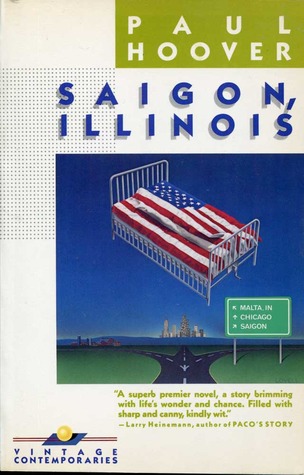 |
 |
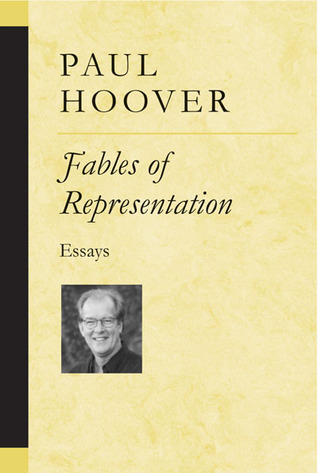 |
So, Veronica Geng was the fiction editor of the New Yorker at the time. A friend of mine, Larry Heinemann, he ended up winning the National Book Award for fiction for a Vietnam novel, said he’s in touch with Veronica Geng and why don’t I send a chapter of my novel to her. So that was helpful. On the news that the New Yorker was going to publish the chapter, Vintage Contemporaries published it as a book. And the book is called Saigon, Illinois. Then I started writing essays. I was well into my forties when I started thinking of myself as a scholar. So I wrote some essays. I wrote a pretty good essay on the New York School called “Fables of Representation,” and that was published as a collection of essays published in 2004 by University of Michigan Press. The title essay was “Fables of Representation.” That essay, which was a fifty-page essay, was published in its entirety in American Poetry Review, with my picture of the cover. It was good to be on the cover of APR. The theme being, all this branching off that I was doing. Then, I happened to have a book—okay, there is a whole sequence here. I’ll make the next bridge. I was puzzled about being a novelist and raced back to poetry as soon as I could. But my theme was the novel itself for the next book. The book I produced was called The Novel: A Poem. It was in thirty sections. The theme was authorship. I wrote parodies of various novels in verse form, like a romance novel, an adventure novel, a war novel, and the book was published by a press I most admire: New Directions. Later, I started translating. I think that translating is something that comes with age, at least that’s what happened with me. In 1994, my first anthology, the Postmodern American Poetry: A Norton Anthology, came out. There is a sequence to all of this. The Novel: A Poem came out in 1991, and I went to see my book at the MLA book exhibit; there I talked to Peter Glassgold of New Directions and I happened to comment to him about how bad the Norton Anthology of Modern Poetry was. A second edition had come out in 1988. It was disastrous. It was a major failure, it seemed. They left out so many important people. And he thought I was making a proposal to him. “Oh, we couldn’t do that,” he said, “because the permissions are too costly. But let me,” he took my arm, “introduce you to Barry Wade of W.W. Norton,” who was right next door. Barry Wade was in a suit. He had three young editors around him, his assistants. So I walked over to them. Barry said, “So what is it you want?” I said, “Well, I was just telling Peter Glassgold that your second edition was not very good because it left out all these poets, Corso, Zukofsky, Berrigan, on and on.” I listed them. That’s not a very smart way to start making a pitch, by criticizing their existing product. But actually it turned out to be a very smart move, because they were very fearful; they’d been getting a lot of criticism from the press. They were ready to listen. I said, “What’s really needed is an anthology of the 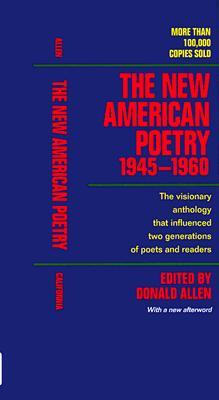 experimental literature all by itself. Kind of like the Donald Allen book, The New American Poetry 1945–1960.” He said, “Well, the permissions are really steep. Probably we won’t do it, but send me a proposal.” He told me what should be in the proposal. I didn’t know. This happened all by accident. So, to make the pitch you have to say why there’s a reason for the book to exist, to whom it would sell, and how much you expect it to sell. He said, “Make a list of the poets you’d include. Not the titles, just the poets.” So I did that. A few weeks later I got a call from Julia Reidhead, who was the senior editor at Norton. She said, “We want to do it. The sales staff loves it and the young people here love it; they love the idea.” So we did it. The same year the anthology came out, Maxine Chernoff and I moved to California, and I began the eight-year commute teaching a double load in the fall semesters, and then I didn’t teach anything in the spring or summer. I was expected to run the poetry program at Columbia College even though I wasn’t there.
experimental literature all by itself. Kind of like the Donald Allen book, The New American Poetry 1945–1960.” He said, “Well, the permissions are really steep. Probably we won’t do it, but send me a proposal.” He told me what should be in the proposal. I didn’t know. This happened all by accident. So, to make the pitch you have to say why there’s a reason for the book to exist, to whom it would sell, and how much you expect it to sell. He said, “Make a list of the poets you’d include. Not the titles, just the poets.” So I did that. A few weeks later I got a call from Julia Reidhead, who was the senior editor at Norton. She said, “We want to do it. The sales staff loves it and the young people here love it; they love the idea.” So we did it. The same year the anthology came out, Maxine Chernoff and I moved to California, and I began the eight-year commute teaching a double load in the fall semesters, and then I didn’t teach anything in the spring or summer. I was expected to run the poetry program at Columbia College even though I wasn’t there.
MH: Chicago leads me to another question: You were there in the 70s, and now you are in San Francisco. How do the two scenes compare?
PH: They are night and day. Chicago is noted for its performance scene. Second City was founded there. Chicago audiences like to laugh; they like to applaud. They will applaud after every poem if you give them the chance, if the poem’s halfway decent. They like funny. My stuff was kind of funny in those days. It was ironical. Then, up came the poetry slams founded by Marc Smith, who was a truck driver from the south side who went to high school with Maxine. But he had admired another form of poetry competition, the bardic competition, founded by Al Simmons of the previous generation. Al went west and founded the Taos Poetry Circus. He had a thing that was a boxing-match motif. He would put two poets in the ring and they would come in with towels around their necks, dancing around like they were going to box. But they would actually compete with poems and try to knock each other out. Marc Smith came along and changed the metaphor to wrestling. In short, Chicago is a performance town. It is an oral literature town. Whereas San Francisco is where the Language poets were founded. Well, one of the two places. There was a battle of the anthologies in the eighties, early nineties, where New York and San Francisco battled it out for who founded Language poetry. Was it Charles Bernstein, Lyn Hejinian, Ron Silliman? You get the idea. So, not that Chicago is not an intellectual town, but it’s more of the earthy, down-in-the-streets, regular people enjoying an evening out, listening to poetry. So, let’s say Beat poetry would be very well received in Chicago. I wrote an essay that appeared in a local Chicago journal explaining what Language poetry was because nobody knew. They go, “What? Isn’t all poetry about language? I don’t get it.” That’s the major difference. One is intellectually complex and requires theory in order to understand it. The other is in the spur of the moment; you’ve got the moxie, the wit, to move people from the stage.
MH: 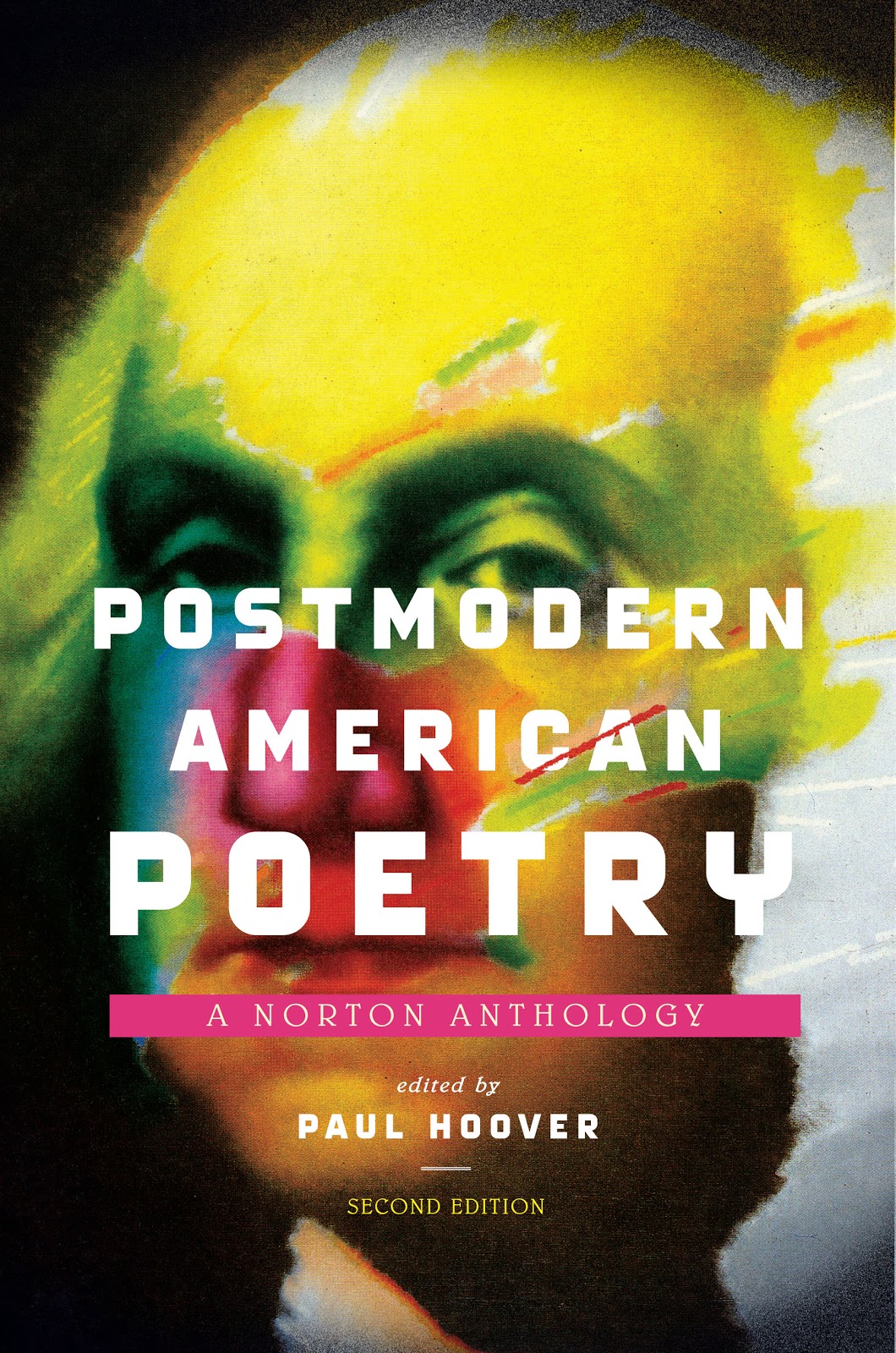 Let’s switch gears. How did you go about the revision process for the latest edition of Postmodern American Poetry: A Norton Anthology?
Let’s switch gears. How did you go about the revision process for the latest edition of Postmodern American Poetry: A Norton Anthology?
PH: You make a list of poets, just like I did the first time, which was, at that time, at the request of the editor. You make a list of who you plan to include. Then you start getting books of theirs. I spent thousands of dollars of my own money. I was straining my credit card. Then I started reading. You use post-it notes, flag pages, keep moving, keep boiling it down. The strategy was this: I knew there would be some poets who would have to leave the anthology. That’s tough. That’s a lot of a responsibility for me. So one of the first things I did was take my own work out. That sort of clears the decks in terms of ego involvement for me. I noticed Norton had done an anthology that I was in called American Hybrid. I noticed the editors did not include themselves, even though they were both prominent poets. And I thought that’s the way to do it. Both of them should have been in that book. But it looks better. I knew almost immediately, instinctively, who I was going to have to drop. I knew that certain people would have smaller sections among the older generation. Then I had to decide who would keep their major sections. I couldn’t keep all the Ginsberg that I had because Ginsberg costs a lot of money. There are realities in this world relating to money and space. The book expanded to almost 1,000 pages—from 700 to 1,000. I felt I had to do that because I may not have a chance to do a third anthology. You know it was 18 years between the two. In another 18 years I’m going to maybe be thinking of other things, if I’m thinking at all. Anyway, it was a way of first condensing the book, and then expanding it. I wanted to reach out to the younger generation: the Ben Lerners, the Noah Eli Gordons, the Cathy Wagners. I knew I wanted to include Edwin Torres. There had been these developments in the 18 years. You had Newlipo, proceduralism, which includes both conceptual poetry and Newlipo. Then you have flarf, which is also procedural and profane, the new “cyber beats.” I started making a list of those people and asking myself, “How exhaustive should it be? Are there too many flarf poets? Is flarf going to survive to the next generation? Will it have an influence or will it die out? If it dies out and I put too many flarf poets in, then I’ve made a bad bet.” That’s the kind of thinking that was going through my mind.
MH: So, when compiling, an anthology, you need to consider the future, past, and present?
PH: Yes: Is it accurate to what happened? I’ll give you an idea of how accuracy can be skewed. In 1994 when we had the celebration reading at St. Mark’s church in The Bowery, there was a huge crowd, 24 poets reading, including Allen Ginsberg, Hilda Morley, among the senior figures. Ginsberg got up to read and said, “Why are there so many Language poets in this book?” He was angry. He was scolding me in front of the audience. And no, of course I didn’t answer it then; I went up to him afterwards, and Charles Bernstein, the Language poet, came up beside me. I said, “Allen, it is what it is. They’re here. You may not like it.” Of course, Language poetry opposed a lot that Ginsberg stood for. And it’s shocking. It’s like a murder. Ginsberg is thinking, “You’re killing me! Don’t do this! What about my legacy?” And then accusations were made like “That’s not really poetry.” I’m moving away from Ginsberg; I’m not putting any blame on him. We all understand the psychology of that. But they look at the new product and they say, “That’s not even poetry.” That’s what they were saying about Language poetry in its day; now they’re [Language poets] all installed in these great jobs all over the country and their mode of poetry is widely accepted, internationally accepted. So now, what will happen after Language poetry? That was the question, thus the term “post-language lyric poetry”. Why they call it post-language poetry is because the Language poets despise the lyric mode, from their somewhat Marxist, objectivist position of the personal “I” they were inheriting from Olson’s statements against the subjective mode.
MH: I noticed that in the new anthology, the Language poets occupy quite a bit of space. It’s important that Language poetry gets a fair amount of attention, because they are a huge influence on the younger generation; Language poetry is something that the younger generation is coming into and experiencing.
PH: They are the new establishment; I mean that with some tongue in cheek. They’ve become the new center.
MH: Replacing who or what?
PH: I have to choose my language carefully here. This is something important to talk about. At the center before, there were at least four movements: the Beats, who got the biggest public attention; the Projectivists, Olson, Creeley, and so on; you had New York School, with the major poet being Ashbery, nobody knows what would’ve happened with O’Hara had he lived; and then you had the aleatory method of John Cage and Jackson Mac Low, and early proceduralist type of stuff. The New York School brought with it the first hint of Oulipo. So all of that was going on, and there was a multiplicity; you could choose your menu. But when the next generation came along, with it came the new consistent primarily of language poetry and performance poetry. And that was a puzzle to me. I attended a meeting of the Modern Language Association, and a lot of these people were together listening to a talk. I remember Johanna Drucker was one of the speakers. I was seated next to Charles Bernstein, and I turned to Charles and I said, “Well, they’re talking about ‘the new,’ but why is it today that the new primarily consists of Language poetry and performance poetry?” Charles didn’t want to answer that himself; he said, “Why don’t you ask them?” So I stood up and I asked them why is that the case. There were so many schools before, and now there are just two. Johanna Drucker’s response was curious. She said, “I’m sorry; it’s not our fault.” What did she think I was saying? She thought that I was blaming them for having influence, that I was upset. I was asking a legitimate question. It’s page and stage; it divides things into page and stage, modes of reception, modes of delivery. I would begin there, if I were going to examine that puzzling question. At any rate, the Language poets are the senior group of the outsiders. Most of the world doesn’t write that way—maybe if you’re in a place like San Francisco or New York. All these things are thought about, for example, where you are right now [Fort Collins], too, though not with so many people thinking. The phrase Language poetry can come up, flarf comes up; it’s all in the zone. But that’s not true everywhere. One of my former students went to study at University of Pennsylvania; and my student’s teacher at U. Penn came back from a vacation from California in about 2000, 2005, something like that, and said, kind of frightened, “I heard there’s something called Language poetry; do you think it’s going to come here?” In other words, there are a lot of people writing without concern for these matters.
MH: One last question: What is your take on conceptual poetry?
PH: Well, let me think. Okay, so if you follow the line that begins with the Dada poem of Tristan Tzara, where you cut up lines from a newspaper, put the scraps of lines in a hat, take them out one by one, put them down, and that’s your poem, so that it’s both preparation and chance, actually more preparation than chance. It is what you choose to treat and then to what degree, with what machine you are going to treat it. And that’s proceduralism. You create a poetry engine or machine. I teach a class at San Francisco State called Poetry Machines, which deals with all these things. You can see the sonnet as a machine in a certain way. A lot of formal decisions get made, and sometimes a very small formal decision gets made that makes a huge difference. For example, no letter E. But there are people who think that this is a challenge to Romanticism’s conception of originality, that the poet is an original person, a deep soul who makes discoveries and scoops the poem out of bone, in a way. And that’s fine. I love the poetry of Cesar Vallejo. He goes deep. He’s also really crazy; his language choices are nutty. I think it’s an electric poetry. But people are doubtful about machine-use. They think it’s too whimsical, that it’s turning poetry into a game. I’m in a curious situation now, having written two books that are proceduralist, probably at risk to my position as a “serious” poet. So, I think conceptualist poetry is like Imagist poetry when it first came around. It seemed at first to be too easy—Oh you mean that’s all the poem is? “So much depends/upon/a red wheel/barrow/glazed with rain/water/beside the white/chickens”? As Wallace Stevens said, “Poetry is that which suffices.” Is the Imagist poem sufficient? Can you live by that rule? I think the same thing applies to conceptual poetry now. Are we going to accept the gag, the concept that you laid over? And then are we going to accept that that’s poetry? And I would say yes, we can. That doesn’t mean that everyone should run out and exercise this mode. Kenny Goldsmith is a really interesting guy. He’s an entertainer in certain ways. He dresses the role. We can see Kenny Goldsmith coming. His major gag is his argument against originality. He argues that originality is corny. If you take the Dada poem through Andy Warhol, John Cage, and Marcel Duchamp, you can follow that line to Kenny Goldsmith and Vanessa Place. And then you’ll see the legitimacy of it, conceptual poetry. Conceptual poetry, to enjoy it, you have to get the joke.
Paul Hoover currently lives, writes, and teaches in the Bay Area. He also runs his own Poetry Blog.